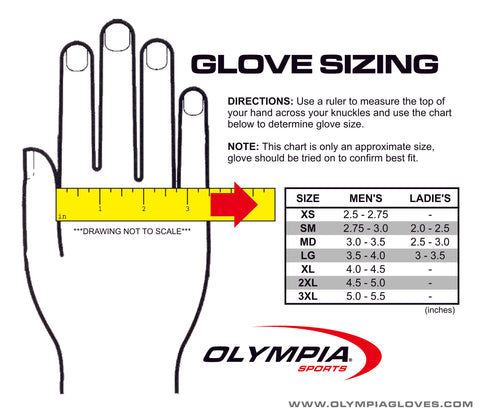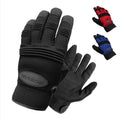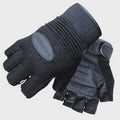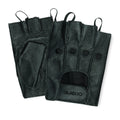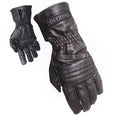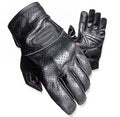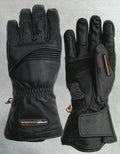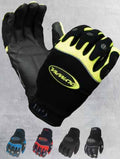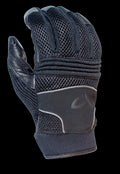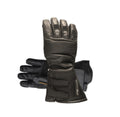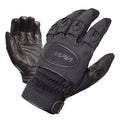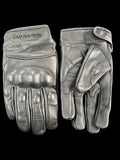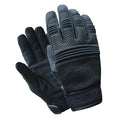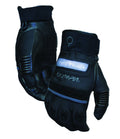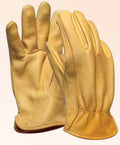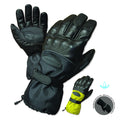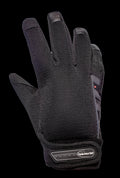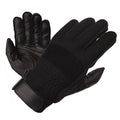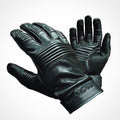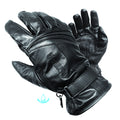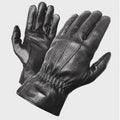6 Tips To Help You Choose Great Cold Weather Motorcycle Gloves
Posted by ROGER HEUMANN
Winter riders are a hardy bunch. Still, the right gear is key to a comfortable ride.
Funny thing is, when it comes to cold weather gloves, riders sometimes try to improvise. Recently someone in a riding forum said he wore scuba gloves while riding his bike. Why would anyone want to do that?
Good cold weather motorcycle gloves aren’t hard to find. And you don’t have to spend a fortune, to keep hands warm and comfortable … especially when you know what to look for.
-
Choose moderately priced, high quality gear that will protect you from wind, wet, and cold.
-
Choose it well, and it will keep you warm even in extreme cold conditions.
- Take care of it, and it will last you a good long time.
Here are 6 things you need to know before buying winter riding gloves. Leave the scuba gear at home!more
6 Things to Know About Cold Weather Motorcycle Gloves
This winter got off to a cold start in much of the country. Even Florida had temps in the 50’s.
Here’s how to choose the right winter glove for where you live and how you ride:
We give the edge to leather for warmth — and many riders must agree, because our best selling winter style at the moment is all leather.
Rider Tip: If you ride in extreme cold, though, all leather may be a better choice.
Premium Gore-Tex® is the best, with a powerful brand behind it, and their famous “guaranteed to keep you dry” guarantee. Other popular inserts to keep hands dry include Aquatex and Dri-Lock.
Leather is windproof, naturally. A windproof glove insert is another way glove designers have to block wind.
As mentioned above, gloves that are labeled windproof and not waterproof will not have sealed seams — so your hands are likely, but not guaranteed, to stay dry in a soaking. In that case — if the seams are not sealed — they will likely be labeled “water resistant”.
Rider TIp: It’s definitely a comfort factor — hands tend to sweat. If you will be riding for any amount of time (or sledding, if you ride a snowmobile) the breathable factor is definitely nice to have.
For instance, index and middle fingers on a brake lever can get cold, so well-insulated fingers are important. Too much bulk on the palm can make it hard to feel and use the controls, or hold the hand comfortably around the throttle.
A reputable glove company will use premium insulation brands like PrimaLoft®, and Thinsulate®.
An All Season Glove, which has less insulation overall, can often be the perfect solution.
But even with heated grips and all season glove, hands and fingertips can get cold on extended rides — so you’ll want to look for a glove with more insulation on the back of the hand, less on the palm … and possibly more warmth on the fingertips as well.
Rider Tip: There’s a unique style of “2 in 1” glove that works well for heated grips — it offers some adjustability based on weather conditions which is a good feature.
This type of glove comes with two interior chambers within the glove, that you choose for different conditions. One hand position has less bulk on the palm, allowing more heat to pass through … and the middle position is good when you need more all-around warmth.
Cold Weather Gloves: Other Features & Tips for Winter Riding
Not everyone rides in the same conditions, or feels the cold the same way. But here are some other key features for cold weather riding to keep hands warm:
- Gauntlets are a MUST in the cold: We like gauntlets for anything below 45 degrees — keeping the cold wind out of your sleeves is critical for maintaining your heat. Look for styles where you can adjust the “snug” at the opening to seal your sleeves.
- Squeegee or wiper blade to keep visor clear: a nice addition on the index finger or thumb.
- Touchscreen to keep gloves on while using electronics: Keep your gloves on, keeps warmth in.
- Glove Liners — another layer of warmth is sometimes needed. In extreme cold. Like a neck warmer, liners are good to keep in your gear bag “just in case”.
- Reflective: Days are shorter, make sure you are visible — good winter gloves should have reflective trim to help get you seen.
- Electric Gloves: Chances are, if you have decided on heated gloves you are not reading this article. But if you plan on a lot of long rides in deep cold, they are probable a good investment!
- Fairings, hand guards and heated grips can help a lot when it comes to colder temps!
So there you have it: Dress in layers … stop for hot coffee when you need it … keep hands, head and feet warm … and you’re good to go!
P.S. You don’t have to spend a lot for warm gloves.
Olympia makes over 20 winter styles, many with 5-Star ratings from other riders, and all under $100 (check here for a dealer near you, or shop online with free shipping on selected styles).
While you can find cold weather motorcycle gloves that easily cost twice that, you don’t have to spend a fortune to stay warm.
A guide to our winter glove styles can be found here:

